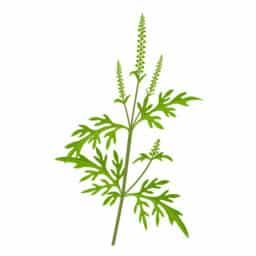Allergy Tests: Skin Prick vs. Blood Tests

If you’ve been suffering from allergy symptoms, you’re not alone: over 30% of Americans have allergies. Common allergy symptoms include sneezing, runny nose, itchy eyes, facial pressure and a sore throat. The best way to treat allergy symptoms is to avoid your allergy triggers in the first place. However, you can’t avoid your allergy triggers…
Willamette ENT Participates in Camp Silver Creek Golf Fundraiser

The YMCA Camp Silver Creek Golf Tournament was a hole-in-one for the Willamette ENT team. Dr. Donovan, Mitchell Gore, Tom Chambers and Jason Beyrouty participated in the event on Monday, July 14, a fundraiser for youths attending Camp Silver Creek. Our golf team placed fourth gross overall, finishing 11 under par. While they played their game,…
The Benefits of Hearing Aids on Kids’ School Performance

If your child is deaf or hard of hearing, you want to do everything you can to ensure that it doesn’t hold them back from getting the most out of their education. Studies have shown that one of the best ways to help is by early intervention with hearing aids. A study from the University…
Managing Your Pet Allergies

Pets bring joy to countless households, but they can also trigger uncomfortable allergy symptoms. If you’re struggling with pet allergies, understanding the causes and finding ways to reduce exposure can help you coexist with your furry friends. What Causes Pet Allergies? Pet allergies aren’t caused by fur itself but by proteins found in animals’ dander…
How to Identify and Remove Ragweed

Although the Willamette Valley is considered the grass seed capital of the world, weeds still play a major role for many allergy sufferers in Northern Oregon. Although it has improved over the years, ragweed, commonly found in the Midwest, still has a strong hold in the Willamette Valley and parts of Southwest Oregon. That makes…
The 8 Sounds of Summer That Can Harm Your Hearing

When the temperature rises, so do the number of noisy activities that could potentially damage our hearing. There’s no need to worry, though. By knowing what they are and remembering to protect your ears, you can keep yourself safe and enjoy all that the season offers. Sun’s Out, Fun’s Out—and Earplugs Are In Noise-induced hearing…
Mark Your Calendars for the Riverfront Family Fest

Willamette ENT is excited to participate in Family Building Blocks’ Riverfront Family Fest. One of the largest child-friendly community events in Salem, this health fair is free to attend and scheduled from 10 a.m. to 2 p.m. Saturday, Aug. 2, at Riverfront Park. At our booth, kids will have the opportunity to participate in an…
What to Know About the Effect of Pollen on Your Skin

Pollen can cause sneezing, itchy eyes and runny noses, but your skin can also suffer from exposure to this common allergen. For some individuals, pollen doesn’t just irritate the airways; it can trigger uncomfortable skin reactions that may last throughout allergy season. Understanding how pollen interacts with your skin can help you better manage symptoms…
How to Tell the Difference Between Allergies and Sensitivities

Though allergies and sensitivities may cause similar symptoms, they originate from very different biological processes and require distinct management strategies. Being able to tell them apart, especially when environmental factors like dust, mold or pollen are involved, can make a big difference in how you respond to and reduce your discomfort. Defining Allergies Allergies occur…
Managing Respiratory Symptoms During Allergy Season

As the seasons change and pollen fills the air, many people find themselves battling more than just sneezing and itchy eyes. Respiratory symptoms such as coughing, wheezing, shortness of breath and chest tightness can also flare up during allergy season, making it difficult to breathe clearly. Whether you have seasonal allergies or an underlying condition…
“I have been going to Willamette ENT on and off for most of my life. The staff is always so friendly, and the doctors and nurses show a lot of care and compassion!”